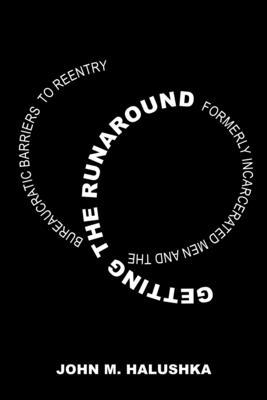Getting the Runaround takes readers into the bureaucratic spaces of prisoner reentry, examining how returning citizens navigate the "institutional circuit" of parole offices, public assistance programs, rehabilitation facilities, shelters, and family courts. Drawing on three years of ethnographic fieldwork and forty-five in-depth interviews with formerly incarcerated men returning to New York City, John M. Halushka argues that the very institutions charged with facilitating the transition from incarceration to community life perversely undermine reintegration by imposing a litany of bureaucratic obstacles. This "runaround" is not merely a series of inconveniences but rather an extension of state punishment that exacerbates material poverty and diminishes citizenship rights. By telling the stories of men caught in vicious cycles of poverty, bureaucratic processing, and social control, Halushka demonstrates the urgent need to shift reentry away from an austerity-driven, compliance-based framework and toward a vision of social justice and inclusion.

Getting the Runaround: Formerly Incarcerated Men and the Bureaucratic Barriers to Reentry
Getting the Runaround takes readers into the bureaucratic spaces of prisoner reentry, examining how returning citizens navigate the "institutional circuit" of parole offices, public assistance programs, rehabilitation facilities, shelters, and family courts. Drawing on three years of ethnographic fieldwork and forty-five in-depth interviews with formerly incarcerated men returning to New York City, John M. Halushka argues that the very institutions charged with facilitating the transition from incarceration to community life perversely undermine reintegration by imposing a litany of bureaucratic obstacles. This "runaround" is not merely a series of inconveniences but rather an extension of state punishment that exacerbates material poverty and diminishes citizenship rights. By telling the stories of men caught in vicious cycles of poverty, bureaucratic processing, and social control, Halushka demonstrates the urgent need to shift reentry away from an austerity-driven, compliance-based framework and toward a vision of social justice and inclusion.